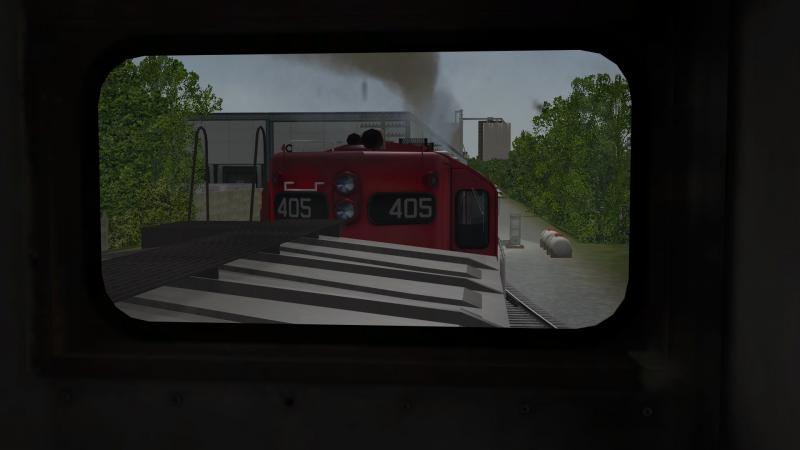General screenshot thread for MSTS / OR
#1052

Posted 05 June 2020 - 05:11 PM
http://www.elvastower.com/forums/public/style_emoticons/default/sign_thank_you.gif for the confirmation http://www.elvastower.com/forums/public/style_emoticons/default/rofl2.gif
Still, as with "Industry 4.0", there's got to be more to it, that can not be guessed from the name, sort of "behind the scenes".
Cheers, Markus
#1053

Posted 06 June 2020 - 12:22 PM
Another big feature: eliminating multiple switching en-route. Originating yards make more blocks and freight train networks are rejiggered so more trains bypass yards. An example from Trains Magazine: CSX used to run a train from Grand Rapids, Michigan to a classification yard in Toledo. And back the other way. Everything from Grand Rapids was sent to Toledo for classification. Now the Grand Rapids traffic leaves in several blocks and the train does set off a block in Toledo but it continues, picking up a block there as well and running to Selkirk yard near Albany, New York.
That all makes sense, but it has evolved to a set of cost-cutting strategies centered around longer trains.
Christopher
#1054

Posted 06 June 2020 - 03:57 PM
As a student of industrial logistics, this is really interesting for me (aside from the cost-cutting), especially since I have not yet heard about this so far!
Cheers, Markus
#1055

Posted 07 June 2020 - 12:13 PM
I remember being a durum miller when CP implemented it. We were always on the verge of shutting the mill down for lack of grain, luckily, trucks would usually arrive at the last minute. This was also around the time where changes in the North American climate meant that finding quality durum became next to impossible on a consistent basis. Even the Canadian wheat was garbage. I remember spending hours every day throwing purifier tips and collecting samples to no real avail. Hoping we could drop the ash in the semolina by a tenth of a percent so we could be "technically on-grade." So we would be stuck waiting until the last minute to get piecemeal shipments of garbage wheat from trucks while the railroad yards were so congested from PSR that the company was considering terminating its contract with CP and moving to trucking entirely, and then we'd short-temper the wheat to either prevent shutdown or to get started up faster when the trucks didn't arrive on time. The nominal temper time was seven and a half hours, we'd make do with four. This leads to huge inconsistencies in moisture. Milling durum isn't like milling white flour where you can sleep in the control room all day. Break rolls are sensitive to moisture and temperature fluctuations. When you short-temper wheat, the mill becomes extremely unstable. In short: PSR was a nightmare and its consequences were a major part of the reason why I decided to quit and go back to college.
But I guess that, as a social worker these days, the stupid decisions that MBAs make guarantee that society will always be messed up enough for me to have steady work? One thing I learned in undergrad was that schools heavily incentivize business curriculums with reduced tuition, paid internships, and lax academic standards (i.e. the least academically-rigorous curriculum is almost guaranteed to be the school of business on a modern-day university campus). It's a great way to boost graduation rates.
#1056

Posted 08 June 2020 - 03:02 PM
 ErickC, on 07 June 2020 - 12:13 PM, said:
ErickC, on 07 June 2020 - 12:13 PM, said:
Not to start a flame war here, but in my eyes, why would a RR company give up any little share of its business to its main competitor, the trucking industry? Doesn't make sense from an operational point of view, right?
WRT shareholder-value, short-termgains, etc., I would not consider myself knowledgeable enough about high-level company management to comment on these. And, since this is about (company) politic, there will always be multiple points of view on this topic which could be discussed on end without coming to any kind of result (other than a quarrel).
 ErickC, on 07 June 2020 - 12:13 PM, said:
ErickC, on 07 June 2020 - 12:13 PM, said:
I remember being a durum miller when CP implemented it. [... etc. ...]
As I said in a previous post, I'm almost done with my BSc degree in industrial logistics. One thing they really hammered into our heads is that when introducing a new logistics strategy, there is always going to be some amount of time during which things run worse than before the switch. The duration of that time will vary depending on the scale of the change and the company size, since it is determined mostly be the time it takes until everybody accepts, and understands and adopts the new mode of operation. What you describe in your long paragraph sounds exactly like the mess during the transition period to me, Erick.
 ErickC, on 07 June 2020 - 12:13 PM, said:
ErickC, on 07 June 2020 - 12:13 PM, said:
But I guess that, as a social worker these days, the stupid decisions that MBAs make guarantee that society will always be messed up enough for me to have steady work? One thing I learned in undergrad was that schools heavily incentivize business curriculums with reduced tuition, paid internships, and lax academic standards (i.e. the least academically-rigorous curriculum is almost guaranteed to be the school of business on a modern-day university campus). It's a great way to boost graduation rates.
Even though paid internships are the norm (mandated by law) in my country at least, I must agree with you on the rest of that, though ;)
Cheers, Markus
#1057

Posted 10 June 2020 - 08:54 PM
#1058

Posted 11 June 2020 - 11:30 AM
 markus_GE, on 08 June 2020 - 03:02 PM, said:
markus_GE, on 08 June 2020 - 03:02 PM, said:
Not to start a flame war here, but in my eyes, why would a RR company give up any little share of its business to its main competitor, the trucking industry?
Cheers, Markus
The usual reason is they don't want that business anymore.
After WWII labor rates went way up, in part because the Depression was over and so were depression era wages and in part because between 1945 and 1950 there was some serious inflation. Natural all the unions did not want their members to suffer to they demanded big wage increases. One effect on railroads is with LCL traffic. Many railroads had large LCL transfer warehouses (maned by union labor) and station agents everywhere who took in packages, either from cars or customers. The change that occurred wasn't called outsourcing but that's what happened: Railroads tweeked their rates just enough to make Freight Forwarder companies take on the business. They also leased many railroad facilities to those companies. And then they let their LCL employees go. The whole wage problem was now somebody else's problem.
I suppose similar thinking was involved with selling branch lines and secondary mains to new operators.
Ever since RR deregulation the economics of the business have made it just about impossible to do anything but serve captive (physical location unable to move) customers, one end or both of the journey. So coal mine to electric plant is important. So is international port to major cities, refineries to major cities and so on. Rates are often set high because one or both parties cannot relocate -- the basic idea is you wnat to take as much money from the traffic as you can w/o running the customers into bankruptcy. Of course it's harder to do when there are two railroads serving the same sites but that is not always the case.
The other thing that I've noticed about RR economics is when the UP changed it's traffic model from funnel (everything goes to Ogden and then a straight shot to Council Bluffs or Kansas City) to a wide network (due to the acquisition of WP, MP, DRGW, and SP). All hell broke loose, especially in Texas and Louisiana. There were far too many nodes to manage and too few managers who understood what to do. In the end it was the management team from MP who solved the problems and shortly afterwards they replaced the long serving Up executives.
Bottom line is complexity is more expensive.
#1059

Posted 12 June 2020 - 02:29 PM
 Genma Saotome, on 11 June 2020 - 11:30 AM, said:
Genma Saotome, on 11 June 2020 - 11:30 AM, said:
[...]
Bottom line is complexity is more expensive.
Well, I guess I goofed on that one and made myself look like a fool (WRT my studies of industrial logistics), simply because I was too fixated on Erick's example when writing the above. http://www.elvastower.com/forums/public/style_emoticons/default/wallbash.gif After all, wheat transport would be exactly the kind of business you described, bulk traffic whose origin cannot move. And as you said, which RR would want to loose any little share of THAT kind of service? http://www.elvastower.com/forums/public/style_emoticons/default/bigboss.gif
Thank you for the other bunch of examples. I found these really interesting, since (a) tightly connected to my studies and (B) I didn't know most of this before.
Also, your "bottom line" is actually the catchiest way I have heard so far of putting what my studies are about in excess of 50% http://www.elvastower.com/forums/public/style_emoticons/default/whistling.gif
Cheers, Markus
#1060

Posted 03 July 2020 - 03:50 AM
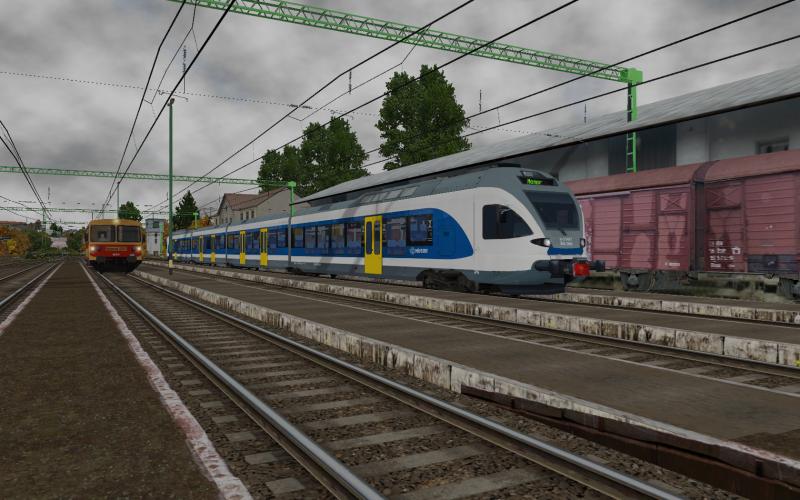
Stadler FLIRT and BZmot waiting at Esztergom for their departure
The FLIRT will soon leave for Budapest Nyugati, whilst the BZmot will later depart for Komarom
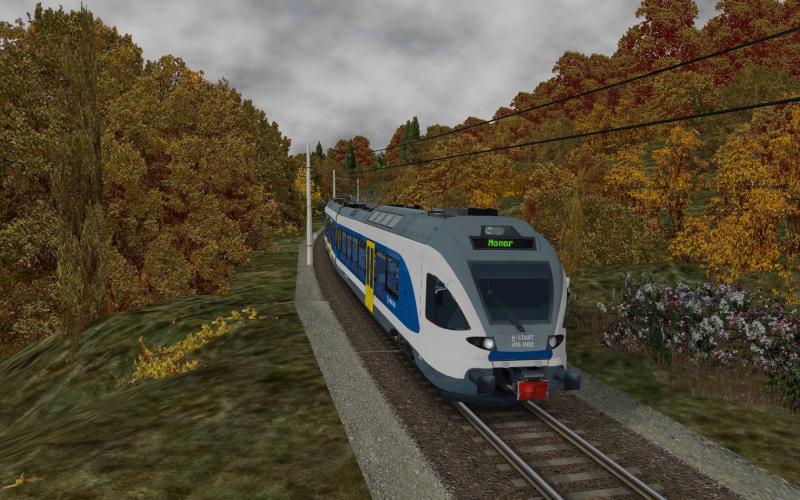
We follow the train through the hills west of Budapest.
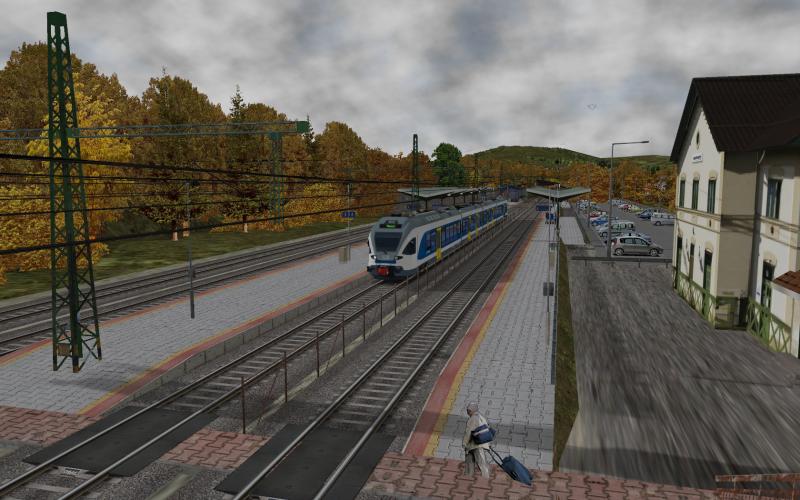
Arriving at Pilisvörösvar.
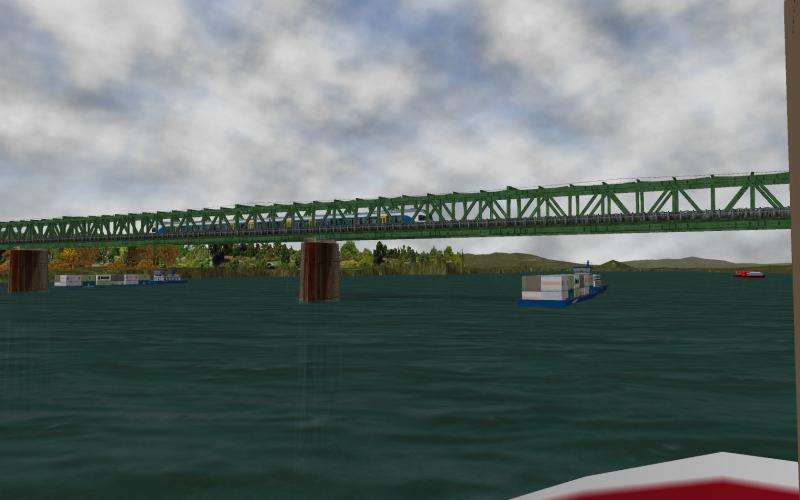
Crossing the Danube between Acquincum and Ujpest
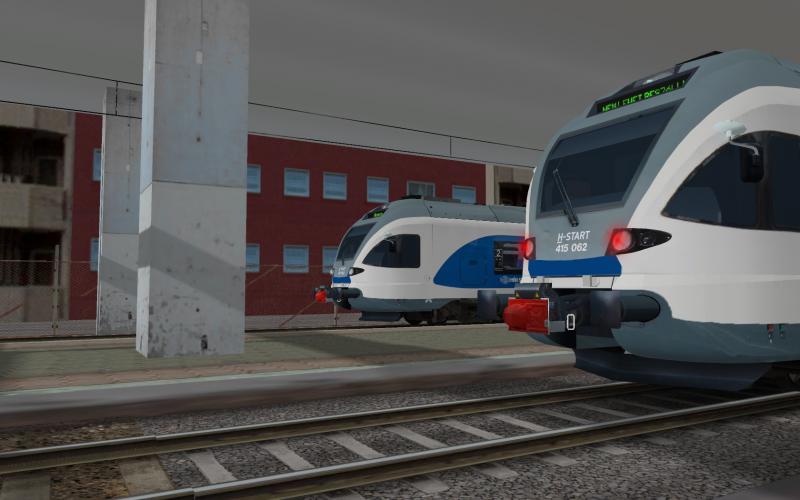
End of the line: Budapest Nyugati
Route: Alföld 7
Rolling Stock: Stadler FLIRT (MÁV 415)

 Log In
Log In Register Now!
Register Now! Help
Help





